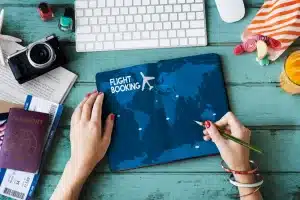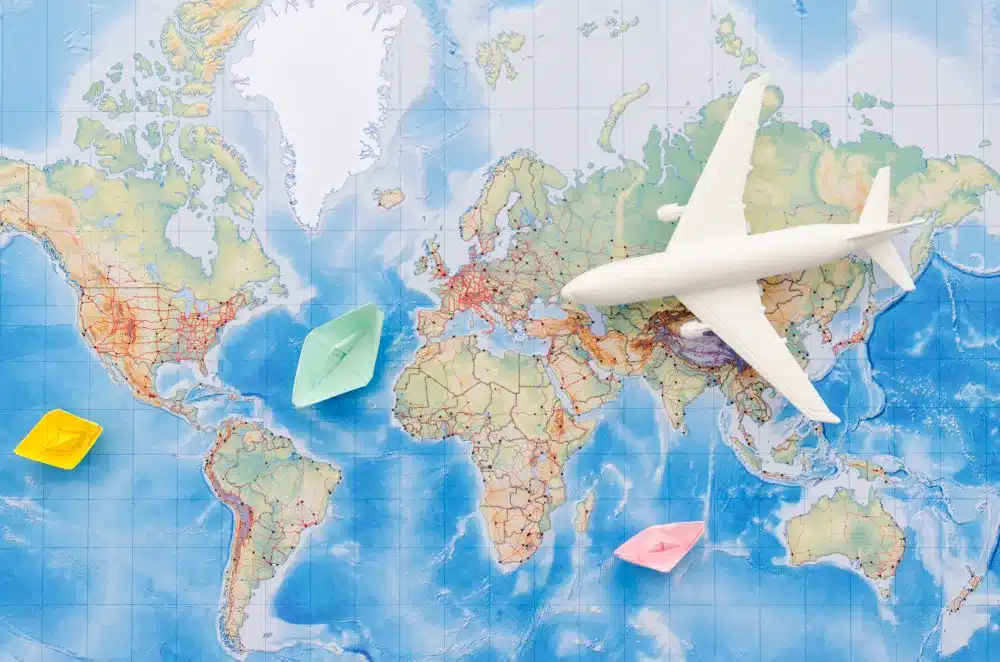People are growing more aware of the world around them, and with that comes a strong desire to experience it right away. Travel is more than simply a vacation; it’s an opportunity to extend horizons, engage with new cultures, and make memories that will last a lifetime. As a travel agency, you are uniquely positioned to make this travel awakening a reality for your clients. However, in the modern economy, simply offering appealing packages isn’t enough.
To stand out from the crowd, you must implement a successful digital marketing strategy. This blog will provide you with the best digital marketing strategies for travel agencies in 2024. We’ll show you how to tap into this travel-aware audience, highlight your unique experiences, and convert those clicks into bookings.

Personalized Email Campaigns
Personalizing email campaigns based on consumer preferences, behaviors, and previous interactions can significantly boost engagement and conversion rates. Travel firms may nurture leads and boost reservations by providing relevant content and offers to the appropriate audience segments.
Social Media Storytelling
By using platforms such as Instagram, Facebook, and TikTok to provide fascinating travel stories, behind-the-scenes looks, and user-generated material, tour operators can interact with their audience on a more personal level. Authentic narrative connects with travelers and inspires them to see new places.
Video Marketing
As video content continues to dominate online platforms, it has become a crucial component of any digital marketing plan. Travel businesses can use video marketing to highlight destinations, provide travel tips, and conduct virtual tours, capturing audiences and increasing engagement.
Building Authentic Partnerships
To effectively use social media influencers, organizations must first create thorough influencer marketing plans that are targeted to their specific aims and target audience. This includes identifying the proper influencers whose demographics and interests match those of the business, setting clear collaboration Objectives, and defining key performance indicators to measure campaign success.
Search Engine Optimization (SEO)
As more travelers rely on search engines to study and plan their journeys, optimizing website content for relevant keywords and enhancing search engine ranks is essential. Investing in SEO helps travel firms show prominently in search results, boosting organic traffic and visibility.
Influencer Partnerships
Collaborating with travel influencers and content creators enables travel businesses to reach out to their engaged audiences while also leveraging their authority and authenticity. Influencer collaborations can help amplify brand messaging, raise brand recognition, and enhance conversions.
User-generated content Campaign
Encourage customers to share their travel experiences through user-generated content initiatives to foster authenticity and trust in the brand. Travel agencies can encourage others to book their next journey by featuring real-life travel experiences and testimonials.
Virtual Reality (VR) experiences
With the evolution of immersive technologies, travel companies can now offer potential passengers virtual reality experiences from the comfort of their own homes. VR experiences can increase engagement and help travelers plan their ideal vacations.
Implement Paid Advertising Campaigns
Paid advertising provides a targeted and scalable option for travel firms to broaden their internet presence and attract potential customers. Platforms such as Google Ads and social media advertising offer a variety of targeting possibilities, allowing agencies to customize their ads based on demographics, interests, and online behavior. Invest in keyword-targeted search ads to acquire individuals who are actively searching for travel-related information. Furthermore, display adverts and retargeting campaigns can increase brand awareness and encourage people to return to your website.
Use YouTube Marketing
YouTube has developed as a great source of travel inspiration and discovery. Travel agencies can use YouTube marketing to promote location highlights, vacation experiences, and professional advice via entertaining video content. Create visually attractive travel videos that capture the essence of various destinations and provide helpful information to potential travelers. Collaborate with travel influencers and vloggers to reach a larger audience and leverage their devoted subscriber base. Travel firms may attract viewers and boost traffic to their websites by providing high-quality content on a constant basis and optimizing video titles, descriptions, and tags.
Incorporating paid advertising and YouTube marketing into your digital marketing strategy will significantly increase your travel agency’s online reach and effectiveness. Travel firms may attract more clients and increase conversions by running sponsored advertising across numerous platforms and exploiting the potential of YouTube marketing. As technology advances, adopting these digital marketing methods will be critical to remaining competitive in the travel business and attaining long-term success.
Data Analytics and Personalisation
By using data analytics technologies to track client behavior, preferences, and booking trends, travel firms may personalize marketing messages and offers. Agencies can increase customer happiness and loyalty by providing personalized experiences to individual travelers.
Embrace Emerging technology
In the rapidly changing field of digital marketing, keeping ahead frequently entails embracing new technology. Augmented reality (AR) is one such technology with immense promise for travel firms. Agencies can provide interactive experiences like virtual tours of hotels, monuments, and attractions by incorporating AR capabilities into their websites or mobile applications. This immersive approach not only improves the user experience but also enables travelers to make better decisions regarding their journeys.
Furthermore, chatbots enabled by artificial intelligence (AI) can streamline customer service and make personalized recommendations to consumers, increasing engagement and conversion rates. By implementing these growing technologies into their digital marketing campaigns, travel firms can differentiate themselves from competitors and give novel solutions to travelers.
Emphasis on sustainability and responsible tourism
With increased awareness of environmental issues and sustainability concerns, travelers are looking for eco-friendly and ethical travel options. Travel agents can match their marketing tactics with this trend by encouraging sustainable travel behaviors and collaborating with environmentally concerned suppliers and hotels.
Content that promotes ecologically friendly destinations, carbon-neutral tours, or community-based tourism projects can connect with socially conscious travelers and build a loyal client base.
Travel demonstrates a commitment to sustainability and responsible tourism. Travel agencies can appeal to ethical travelers while also making a beneficial environmental and social impact, thereby increasing their brand reputation.
Social Commerce Integration for Travel Agencies
The combination of social media and e-commerce creates a compelling opportunity for travel firms to improve their digital marketing strategies. Social commerce enables travel firms to effortlessly integrate booking functionality into their social media presence, allowing travelers to discover, study, and book trips straight from their preferred platforms.
Platforms such as Facebook, Instagram, and Pinterest include features like “Book Now” buttons and shoppable posts, allowing for seamless transactions and increasing conversions. Agencies can utilize social commerce by optimizing their social media presence, producing visually engaging material, and strategically presenting travel packages and bargains.
This integration improves the booking process and overall customer experience, increasing loyalty and engagement. Travel agencies can get a competitive advantage by incorporating social commerce into their digital marketing strategy. This allows them to use social networks as sales channels and drive revenue development.

WhizCrow is an expert in travel industry marketing strategies
WhizCrow provides experienced direction and support for executing these digital marketing methods for your travel agency. With years of experience in the travel industry and a thorough awareness of the shifting digital market, Whizcrow can assist your agency in standing out, attracting more consumers, and achieving its business objectives. Trust Whizcrow to handle the complexity of travel industry marketing and boost your agency’s success.






